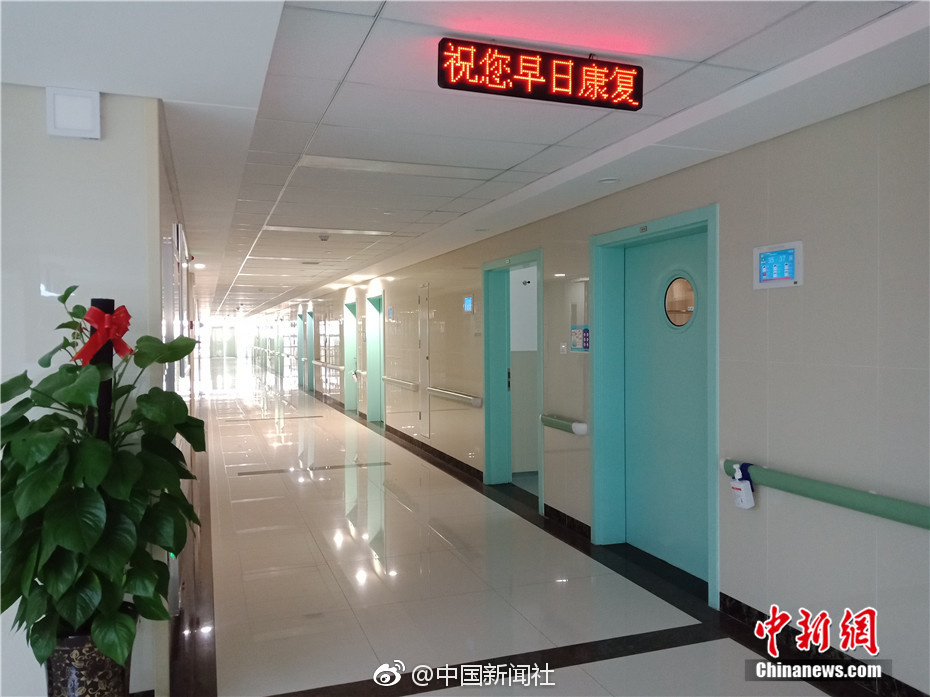
Logistics management refers to the application of the basic principles and scientific methods of management in the process of social reproduction, according to the laws of the physical flow of material information, and carry out logistics activities Plan, organize, command, coordinate, control and supervise, so that various logistics activities can achieve the best coordination and cooperation, so as to reduce logistics costs and improve logistics efficiency and economic benefits.
Logistics refers to the use of modern information technology and equipment to realize rationalized service models and advanced service processes. Logistics emerges with the emergence of commodity production and develops with the development of commodity production, so logistics is an ancient traditional economic activity.
Improve logistics efficiency and economic benefits. Modern logistics management is a professional discipline based on system theory, information theory and cybernology.

1. The application of system engineering in the field of logistics is as follows: Logistics technology in warehousing and distribution can greatly improve Flow efficiency and reduce logistics costs. Logistics technology includes acquisition technology, exchange technology, tracking technology and e-commerce.
2. Employment direction of logistics engineering majors After graduation, students in this major can carry out the planning and design of logistics systems, the research and development of logistics technical equipment, the analysis and control of logistics costs, etc. in logistics, transportation, machinery manufacturing and other enterprises.
3. Graduates can engage in warehousing equipment layout, inventory control, warehouse layout optimization and other work in the field of warehousing and logistics management.They can help enterprises improve warehousing efficiency and reduce inventory costs. Logistics information system and technology application: Graduates can engage in the development, management and application of logistics information system.
4. The development trend of logistics engineering will obviously approach informatization, and the application of big data and cloud computing technology will bring technical support to the internal resource allocation and optimization of logistics engineering.
1. Continuously strengthen the level of logistics information management and introduce advanced logistics management experience. Streamline the actual workflow. Now that the internal process has been sorted out, information transformation and construction should be carried out on this basis.
2. Enterprise management is the "supervisor" of logistics management. It supervises the operation of the logistics information system reasonably, legally and correctly by subordinate employees to ensure the smooth and efficient logistics. In other words, logistics information can clarify the responsibilities of staff, which is conducive to the management of employees' performance and other conditions.
3. Quotation management includes importing quotations and setting shipping methods. Operation management includes order recording, automatic minimum price division and adjustment, shipment, order exchange, return and other processes. Customer service management includes the processing and automatic inspection of problems.
4. The second level is management control, which requires focusing on functional measurement and reporting. Functional measurement is necessary to provide management feedback on service level and resource utilization. Therefore, management control involves evaluating past functions and identifying various options.
Modern logistics management is a professional discipline based on system theory, information theory and cybernetics.
Question 1: What does modern logistics management mean? Modern times Logistics refers to a new type of integrated management that integrates logistics activities such as information, transportation, warehousing, inventory, loading and unloading, and packaging. The task is to reduce the total cost of logistics as much as possible and provide the best service for customers.
Logistics refers to the use of modern information technology and equipment to realize rationalized service models and advanced service processes. Logistics emerges with the emergence of commodity production and develops with the development of commodity production, so logistics is an ancient traditional economic activity.
1. The logistics management system mainly solves the needs of daily office and project management for logistics companies, assists staff in daily logistics management and personnel management, improves management efficiency, reduces operating costs, and enhances the long-term competitiveness of enterprises.
2. Logistics information management system refers to the logistics management system of enterprises, including the information management system of third-party logistics. The system involves warehousing operation management, transportation and loading management, financial management, human resources management and other contents.
3. Logistics ERP management system refers to a logistics information management system developed based on the ERP concept and logistics business characteristics. It integrates the management of the logistics resources and processes of the enterprise, including transportation, warehousing, packaging, distribution, etc.
Logistics information management system refers to the information management system of enterprise logistics including third-party logistics. The system involves warehousing operation management, transportation and loading management, financial management, human resources management and other contents.
The logistics management system mainly solves the daily office and project management needs of logistics companies, assists staff in daily logistics management and personnel management, improves management efficiency, reduces operating costs, and enhances the long-term competitiveness of enterprises.
Logistics ERP management system refers to a logistics information management system developed based on the ERP concept and logistics business characteristics. It integrates the logistics resources and processes of the enterprise, including transportation, warehousing, packaging, distribution, etc.
The logistics erp management system includes the delivery business management module: waybill preparation, including the entry, printing, storage, classification, retrieval, statistics and other functions of waybills. The goods are transferred, and the receipt is directly diverted to the third-party carrier company for reconciliation of the transit goods.
Logistics information management system is an information management system specialized in the logistics management of enterprises, including third-party logistics. Judging from the development history of logistics, in the 1990s, the development of logistics technology was mainly reflected in equipment technology, including automated warehouses, container transportation, and large freight trucks. And the accompanying GPS and GIS technologies, etc.
Generally speaking, the ERP system is a management information system that comprehensively integrates logistics, capital flow and information flow.
OKX Wallet login-APP, download it now, new users will receive a novice gift pack.
Logistics management refers to the application of the basic principles and scientific methods of management in the process of social reproduction, according to the laws of the physical flow of material information, and carry out logistics activities Plan, organize, command, coordinate, control and supervise, so that various logistics activities can achieve the best coordination and cooperation, so as to reduce logistics costs and improve logistics efficiency and economic benefits.
Logistics refers to the use of modern information technology and equipment to realize rationalized service models and advanced service processes. Logistics emerges with the emergence of commodity production and develops with the development of commodity production, so logistics is an ancient traditional economic activity.
Improve logistics efficiency and economic benefits. Modern logistics management is a professional discipline based on system theory, information theory and cybernology.

1. The application of system engineering in the field of logistics is as follows: Logistics technology in warehousing and distribution can greatly improve Flow efficiency and reduce logistics costs. Logistics technology includes acquisition technology, exchange technology, tracking technology and e-commerce.
2. Employment direction of logistics engineering majors After graduation, students in this major can carry out the planning and design of logistics systems, the research and development of logistics technical equipment, the analysis and control of logistics costs, etc. in logistics, transportation, machinery manufacturing and other enterprises.
3. Graduates can engage in warehousing equipment layout, inventory control, warehouse layout optimization and other work in the field of warehousing and logistics management.They can help enterprises improve warehousing efficiency and reduce inventory costs. Logistics information system and technology application: Graduates can engage in the development, management and application of logistics information system.
4. The development trend of logistics engineering will obviously approach informatization, and the application of big data and cloud computing technology will bring technical support to the internal resource allocation and optimization of logistics engineering.
1. Continuously strengthen the level of logistics information management and introduce advanced logistics management experience. Streamline the actual workflow. Now that the internal process has been sorted out, information transformation and construction should be carried out on this basis.
2. Enterprise management is the "supervisor" of logistics management. It supervises the operation of the logistics information system reasonably, legally and correctly by subordinate employees to ensure the smooth and efficient logistics. In other words, logistics information can clarify the responsibilities of staff, which is conducive to the management of employees' performance and other conditions.
3. Quotation management includes importing quotations and setting shipping methods. Operation management includes order recording, automatic minimum price division and adjustment, shipment, order exchange, return and other processes. Customer service management includes the processing and automatic inspection of problems.
4. The second level is management control, which requires focusing on functional measurement and reporting. Functional measurement is necessary to provide management feedback on service level and resource utilization. Therefore, management control involves evaluating past functions and identifying various options.
Modern logistics management is a professional discipline based on system theory, information theory and cybernetics.
Question 1: What does modern logistics management mean? Modern times Logistics refers to a new type of integrated management that integrates logistics activities such as information, transportation, warehousing, inventory, loading and unloading, and packaging. The task is to reduce the total cost of logistics as much as possible and provide the best service for customers.
Logistics refers to the use of modern information technology and equipment to realize rationalized service models and advanced service processes. Logistics emerges with the emergence of commodity production and develops with the development of commodity production, so logistics is an ancient traditional economic activity.
1. The logistics management system mainly solves the needs of daily office and project management for logistics companies, assists staff in daily logistics management and personnel management, improves management efficiency, reduces operating costs, and enhances the long-term competitiveness of enterprises.
2. Logistics information management system refers to the logistics management system of enterprises, including the information management system of third-party logistics. The system involves warehousing operation management, transportation and loading management, financial management, human resources management and other contents.
3. Logistics ERP management system refers to a logistics information management system developed based on the ERP concept and logistics business characteristics. It integrates the management of the logistics resources and processes of the enterprise, including transportation, warehousing, packaging, distribution, etc.
Logistics information management system refers to the information management system of enterprise logistics including third-party logistics. The system involves warehousing operation management, transportation and loading management, financial management, human resources management and other contents.
The logistics management system mainly solves the daily office and project management needs of logistics companies, assists staff in daily logistics management and personnel management, improves management efficiency, reduces operating costs, and enhances the long-term competitiveness of enterprises.
Logistics ERP management system refers to a logistics information management system developed based on the ERP concept and logistics business characteristics. It integrates the logistics resources and processes of the enterprise, including transportation, warehousing, packaging, distribution, etc.
The logistics erp management system includes the delivery business management module: waybill preparation, including the entry, printing, storage, classification, retrieval, statistics and other functions of waybills. The goods are transferred, and the receipt is directly diverted to the third-party carrier company for reconciliation of the transit goods.
Logistics information management system is an information management system specialized in the logistics management of enterprises, including third-party logistics. Judging from the development history of logistics, in the 1990s, the development of logistics technology was mainly reflected in equipment technology, including automated warehouses, container transportation, and large freight trucks. And the accompanying GPS and GIS technologies, etc.
Generally speaking, the ERP system is a management information system that comprehensively integrates logistics, capital flow and information flow.
Binance app download Play Store
author: 2025-01-22 23:44 OKX Wallet download
OKX Wallet download
719.71MB
Check OKX download
OKX download
871.58MB
Check Binance US
Binance US
633.45MB
Check Binance wallet
Binance wallet
159.67MB
Check Binance Download for PC Windows 10
Binance Download for PC Windows 10
356.66MB
Check Binance wallet
Binance wallet
362.63MB
Check Binance app
Binance app
278.97MB
Check Binance download
Binance download
971.14MB
Check Binance login
Binance login
126.95MB
Check Binance app
Binance app
297.68MB
Check Binance Download for PC Windows 10
Binance Download for PC Windows 10
513.81MB
Check Binance Download for PC Windows 10
Binance Download for PC Windows 10
139.78MB
Check OKX Wallet app download for Android
OKX Wallet app download for Android
675.65MB
Check Binance wikipedia
Binance wikipedia
117.97MB
Check Binance US
Binance US
634.92MB
Check Binance app
Binance app
839.27MB
Check OKX Wallet apk download
OKX Wallet apk download
382.12MB
Check Binance download iOS
Binance download iOS
397.87MB
Check Binance APK
Binance APK
744.76MB
Check OKX Wallet to exchange
OKX Wallet to exchange
897.21MB
Check Binance US
Binance US
288.89MB
Check Binance app download Play Store
Binance app download Play Store
655.92MB
Check OKX Wallet APK
OKX Wallet APK
146.33MB
Check Binance app
Binance app
658.78MB
Check okx.com login
okx.com login
676.55MB
Check Binance download
Binance download
463.98MB
Check OKX app
OKX app
193.61MB
Check Binance wallet
Binance wallet
351.72MB
Check Binance US
Binance US
665.75MB
Check okx.com login
okx.com login
384.38MB
Check OKX Wallet apk download latest version
OKX Wallet apk download latest version
268.41MB
Check Binance exchange
Binance exchange
677.71MB
Check Binance app
Binance app
396.36MB
Check Binance login
Binance login
162.18MB
Check Binance download Android
Binance download Android
577.48MB
Check OKX Wallet extension
OKX Wallet extension
197.28MB
Check
Scan to install
OKX Wallet login to discover more
Netizen comments More
1897 万古流芳网
2025-01-23 01:33 recommend
748 有眼如盲网
2025-01-23 00:41 recommend
2522 别有天地网
2025-01-23 00:29 recommend
2759 独出新裁网
2025-01-23 00:02 recommend
1266 摇旗呐喊网
2025-01-22 23:57 recommend